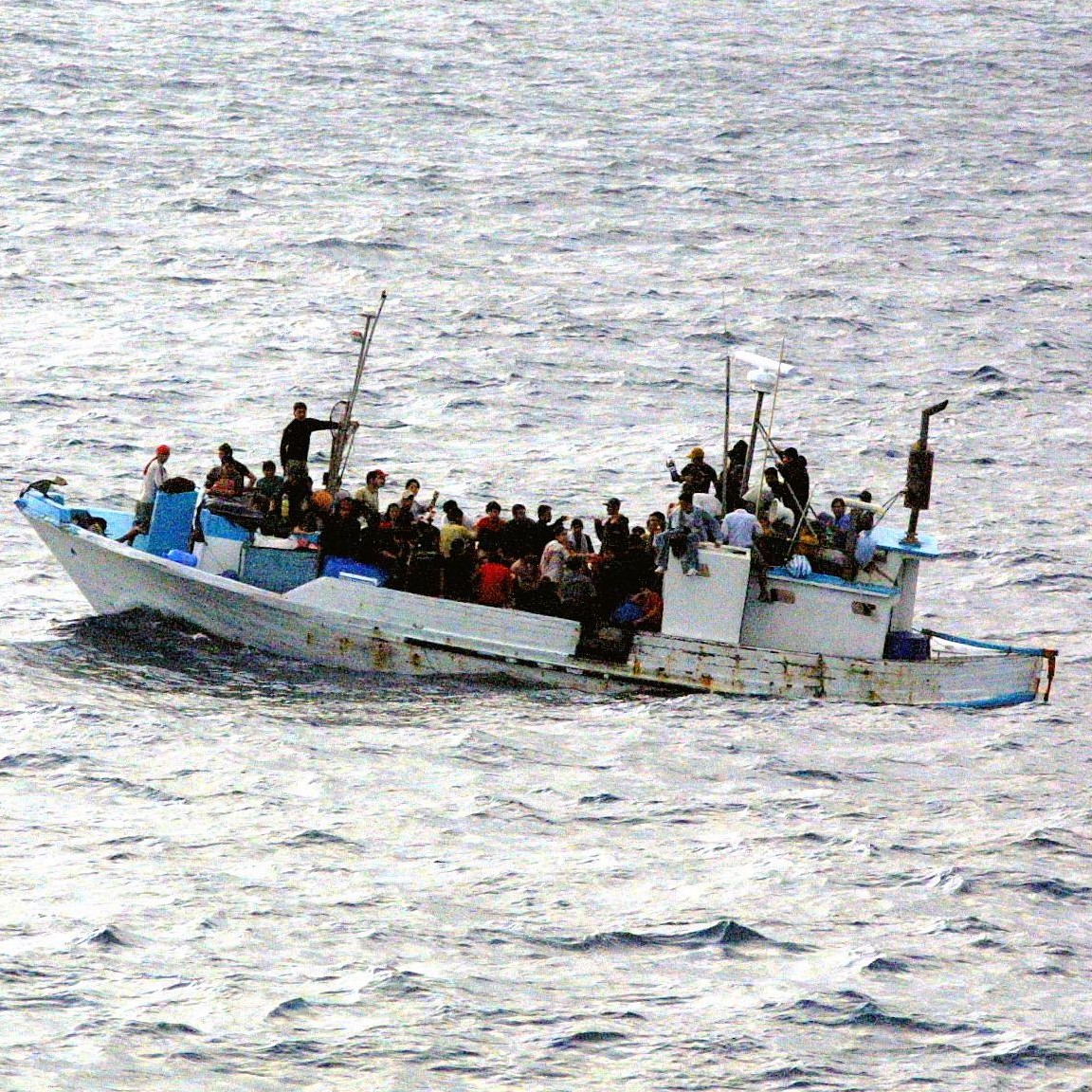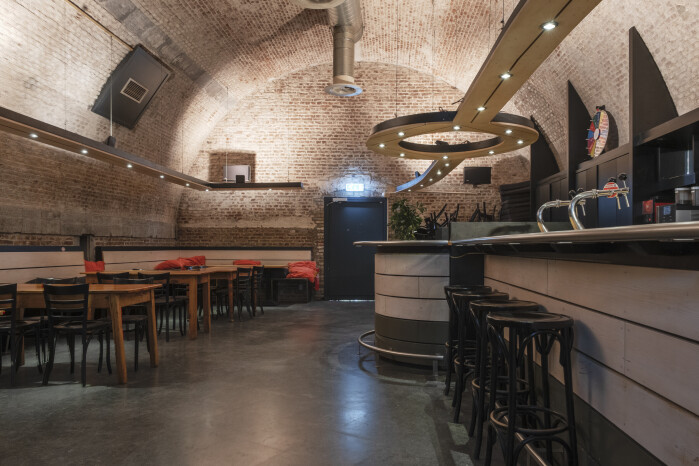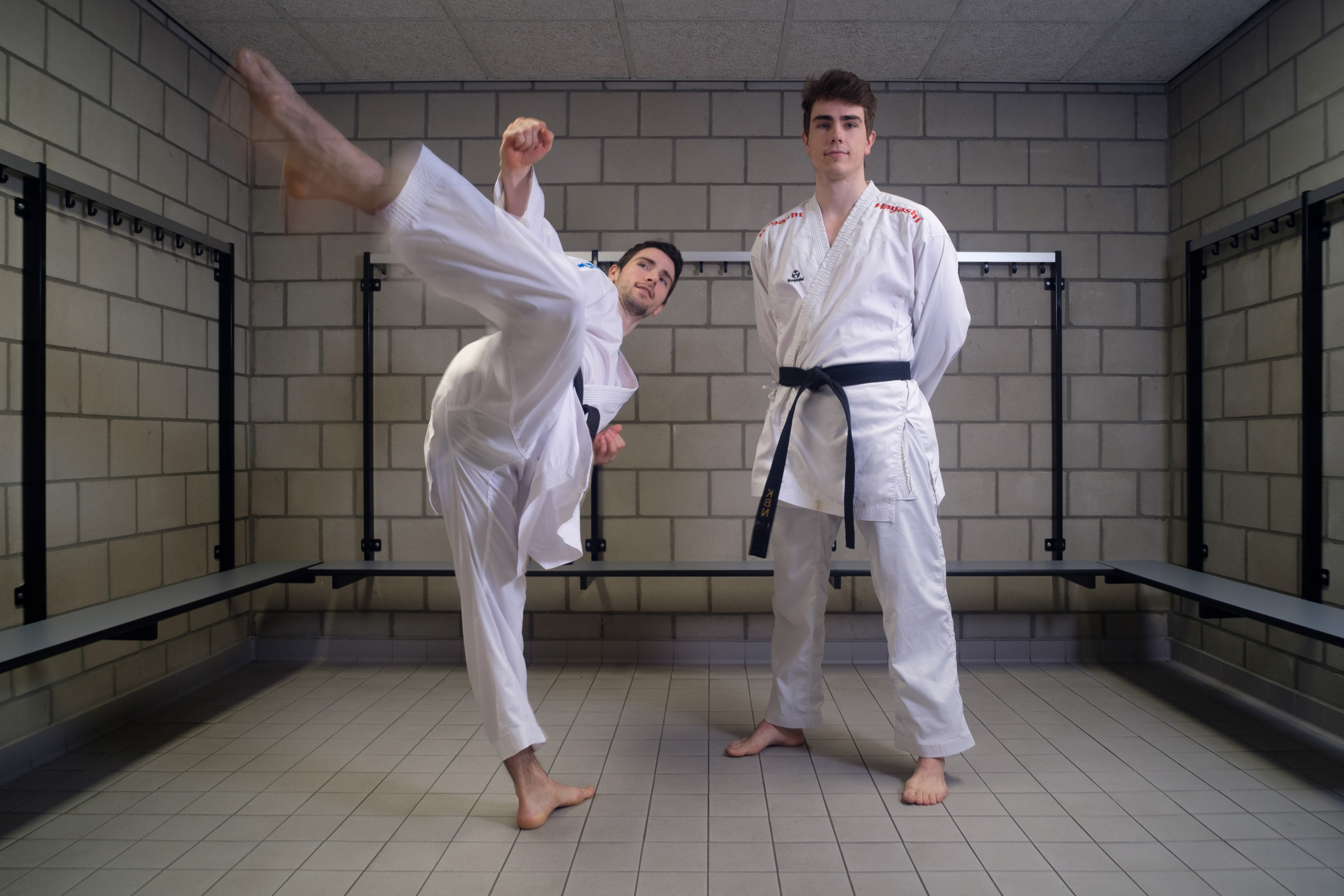Eight years of Network Refugees and Education
It is 2015. Countless Syrian citizens flee their country because of a fierce civil war. Large parts of Europe host the refugees. Angela Merkel, then Chancellor of Germany, says: "Wir schaffen das." Harm Hospers, UM's vice-rector of education in 2015, sees there is much room for improvement in hosting refugees in Maastricht and the surrounding area. Especially when it comes to integration and education. He contacts all organisations in South Limburg involved in the reception of refugees and brings their representatives together at the table. The Network Refugees and Education South Limburg is a fact. A network unique to the Netherlands and still active.
Harm Hospers: "The network came into being very quickly, because it turned out that we needed each other to really mean something for refugees. Each individual organisation was running up against the limits of what could or could not be arranged. By openly sharing with each other what you are up against, you create an environment where solutions can be sought together. As a result, refugees were much less sent from pillar to post or lost out of sight."
Short lines
Current chair of the Network, Emeritus Professor of Human Rights Fons Coomans, sees that especially the short lines between the organisations are crucial: "During our monthly meetings, general, and often similar, experiences are exchanged. Key words are coordination, anticipation, thinking along, identifying bottlenecks, finding solutions and sharing developments. It is important that this be done from various perspectives by the network partners involved. This results in tailor-made solutions. But practical issues are also discussed and addressed. When one organisation has a shortage of teachers, the other organisation helps by referring candidates for teaching positions to the inquiring party. In addition to educational organisations, the Network includes the Municipality of Maastricht, COA, Refugee Council Maastricht-Heuvelland and NIDOS. In this way, the obstacles that educational organisations face directly reach the bodies that can actually, but of course within legal limits, deal with them."

The Network Refugees and Education helps refugees residing in our region realise their human right to education. This also promotes their ability to participate in the labour process and find their way in our society.
All levels of education
The Network is funded by Maastricht University, but this does absolutely not mean that its focus is mainly on higher-educated people with a refugee background. VISTA College offers a Dutch language course to prepare refugees for the integration exams. These are people with completely diverse learning backgrounds: from illiterate to students with intermediate learning backgrounds. Robert Doyen, training manager TAAL+ at VISTA: "Most people have no idea what it means to teach illiterates. That requires a huge amount of understanding and patience from our teachers. And keep in mind that more and more people will come to the Netherlands with little or no education. As wars last longer, young people increasingly less education before they arrive here." NOVO College, the international transition class, also notices that the children they teach have received less and less education. Frances Geene, coordinator of NOVO: "We provide education to children aged between 12 and 18. We notice that these children have often been on the road for a very long time and sometimes haven't been to school for several years. This is a worrying situation. We also have a severe shortage of teachers and rooms. Fortunately, the other Network members think along and we can sometimes come to solutions."
Praktech offers a practical training programme to teach basic technical skills, such as carpentry, bricklaying, plastering, painting and tiling. Sylvia Houben, team leader at Praktech, says: "Praktech focuses on (young) adult status holders who benefit from practical training that fits in with the mandatory civic integration. By teaching and improving the necessary competences in the field of construction, we train course participants in order to increase their chances of a sustainable place in the labour market. In doing so, it is very important not to lose sight of possible problems in other areas of life. Based on our extensive experience with dual pathways, together with VISTA College, we are convinced that cooperation in the chain is successful!"
There is also the Wereldwijd Foundation, a course centre for asylum seekers dedicated to helping status holders, refugees and asylum seekers who have exhausted all legal remedies and return to their own country. Mirjam Kemp, director of Stichting Wereldwijd: "Students receive Dutch lessons and training in all kinds of fields, ranging from electrical engineering to sewing skills and from computer knowledge to welding. Asylum seekers who have exhausted all legal remedies and are returning to their home countries are given help to support themselves there. Tools and implements are collected and placed in a large crate. That crate goes with them and forms the basis for a fresh start in their own country. Over the years, more than 600 crates have been moved to 55 countries."
Refugees with a higher education background take their civic integration course at Maastricht University's Language Centre and, if they prove competent, can move on to the pre-bachelor's programme offered by Zuyd University of Applied Sciences and the UM Language Centre. This pre-bachelor is also the result of close cooperation within the Network.
In our primary school, De Poort in Maastricht, we offer First Reception education to asylum seekers, but we also have Language Classes. In the Language Classes, children aged 7 to 12 who speak little or no Dutch receive specialised language education. We invest a lot in vocabulary, speaking, reading and writing. For us, the Network is important because it puts us in close contact with other educational institutions for refugees. We can thus even play a role in individual cases.
- Lineke de Kruijf
Director of primary school De Poort

We pre-bachelor teachers do more than just prepare students for higher education. We work with buddies from the Social Work programme who help guide our participants. For example, we had a student who had studied architecture in her home country and wanted to continue her studies in the Netherlands. Before admission, the new programme asked to see projects she had realised during her studies. We contacted the programme to explain the refugee's special situation. Taking work papers with her was not possible in this case. Meanwhile, the pre-bachelor has helped 104 young ambitious participants; 60 per cent continue to study, the others we guide towards work. Not everyone is successful. The home situation (including in the country of origin - such as the recent earthquakes in Syria and in Turkey, as well as wars) - can affect emotional and psychological well-being and influence study success. What is certain is that after the pre-bachelor, every participant is better equipped to participate in Dutch society.
- Hilde van Schaeren
Coordinator Pre-bachelor's programme for refugees, Zuyd University of Applied Sciences
Volunteers
But it is not only professionals who offer support to refugees. Many volunteers do their bit, including UM students. The partly UM-funded Refugee Project Maastricht (RPM), part of student chaplaincy The InnBetween, has more than 120 volunteers who meet the needs of over 1,500 participants every month. RPM connects refugees, (international) students and local residents. Nathalie Ummels, coordinator of RPM: "We offer a variety of activities, such as language sessions, a buddy programme, cultural days, a baking club, guitar lessons, various children's activities, as well as a community centre where anyone can drop in. Everyone learns from each other and everyone feels heard and seen at RPM."
Professional reception
Of course, all organisations that receive refugees professionally are also part of the Network. They are crucial for achieving results and, where possible, removing obstacles refugees face when coming to Limburg. For example, the Municipality of Maastricht keeps all members accurately informed of new developments in legislation or municipal policy. COA listens very carefully to the situation within the other Network organisations and tries to meet their needs as much as possible. NIDOS, the foundation that receives unaccompanied minor refugees, keeps in close contact within the Network with the educational organisations and signals when difficult situations in the field of education threaten to arise."
What I bring to the Network is to give COA a face. Creating clarity where necessary about the work, processes and activities carried out within an asylum seekers' centre and COA. What I get from the Network is insight into the diversity of training on offer for 'our' target group. In both bringing and taking, I focus on connecting with the cooperation partners within the city of Maastricht.
- Monique Maes
Site manager Asylum Seekers’ Centre Maastricht
By: Margot Krijnen
All over the world, people have to flee for their lives because of war, political violence, their sexual orientation, origin or religion. Refugees who end up in the Netherlands can count on the support and advocacy of VluchtelingenWerk Nederland (Dutch Refugee Council). From arrival to self-reliance. In Maastricht and Heuvelland, VluchtelingenWerk counsels status holders on their way to self-reliance during the first year after moving in. Integration, work and education are always topics of discussion. We support and advise our clients in consultation with the cooperation partners of the Network Refugees and Education. Short lines, knowing how to find each other is essential for this and can make all the difference for clients to find the most appropriate path life path in the Netherlands. We are very happy to be part of the Network Refugees and Education in Maastricht.
- Anneke Alofs & Nicole Gijsbregts
Team leaders Maastricht decentralised Refugee Council South Netherlands
Also read
-
A study conducted by the Easo led by Prof. Gijs Goossens of Maastricht UMC+ and Dr. Luca Busetto published today in Nature Medicine.
-
Maastricht University takes care of many distinctive buildings and art works that we all know. By giving them a new purpose, we preserve these icons and give them a new meaning, making them the vibrant heart of a bustling city.
Did you know that these buildings and art works also provide access to...
-
UM alumni Brian and Rob Timmermans combined their degrees in Econometrics and Sustainable Finance with their passion for karate, resulting in an ever-expanding trophy collection. Both brothers are multi-time and reigning Dutch champions in their respective weight classes and have achieved success on...


